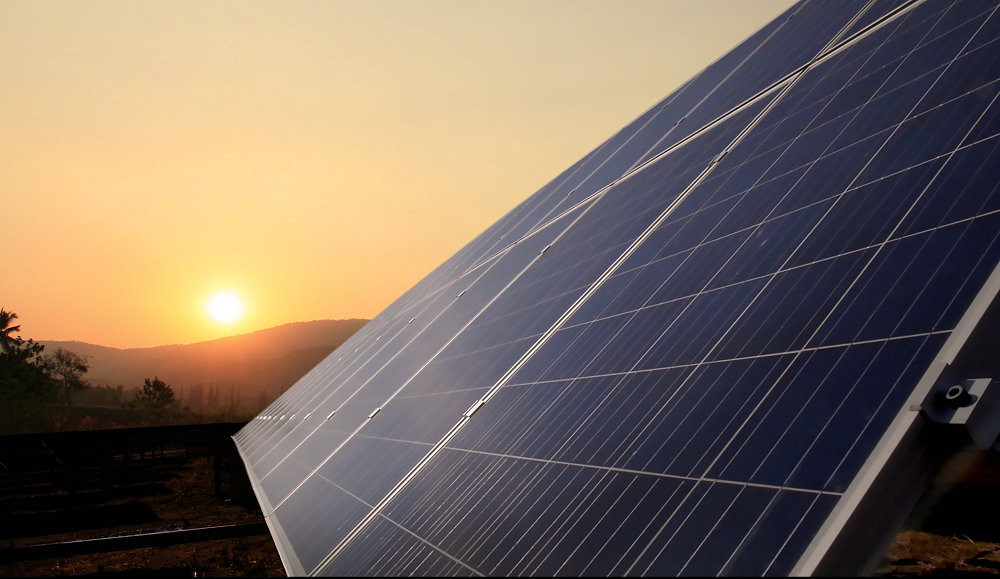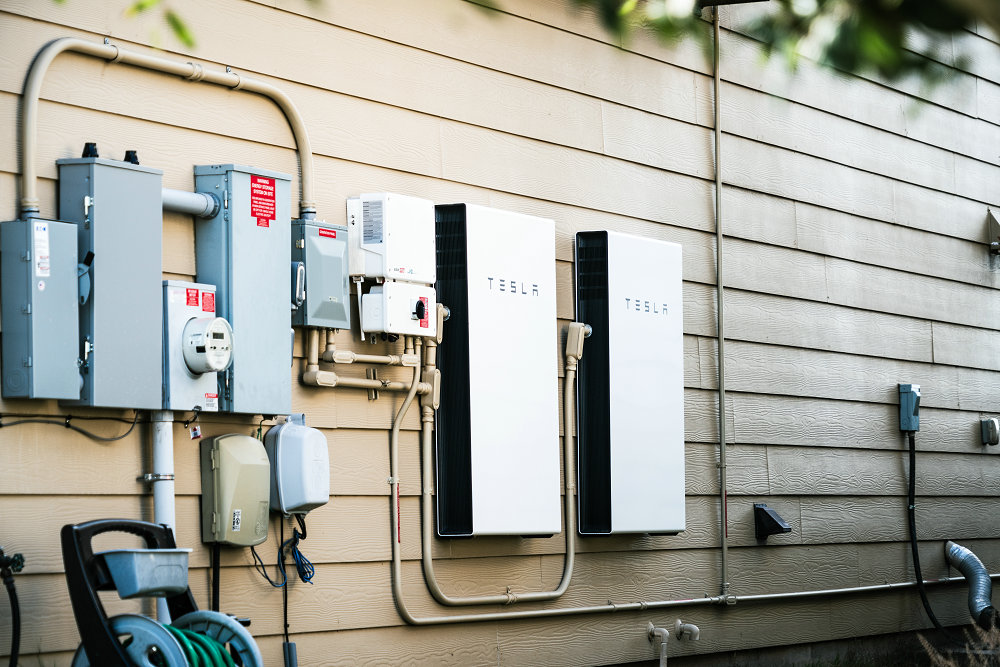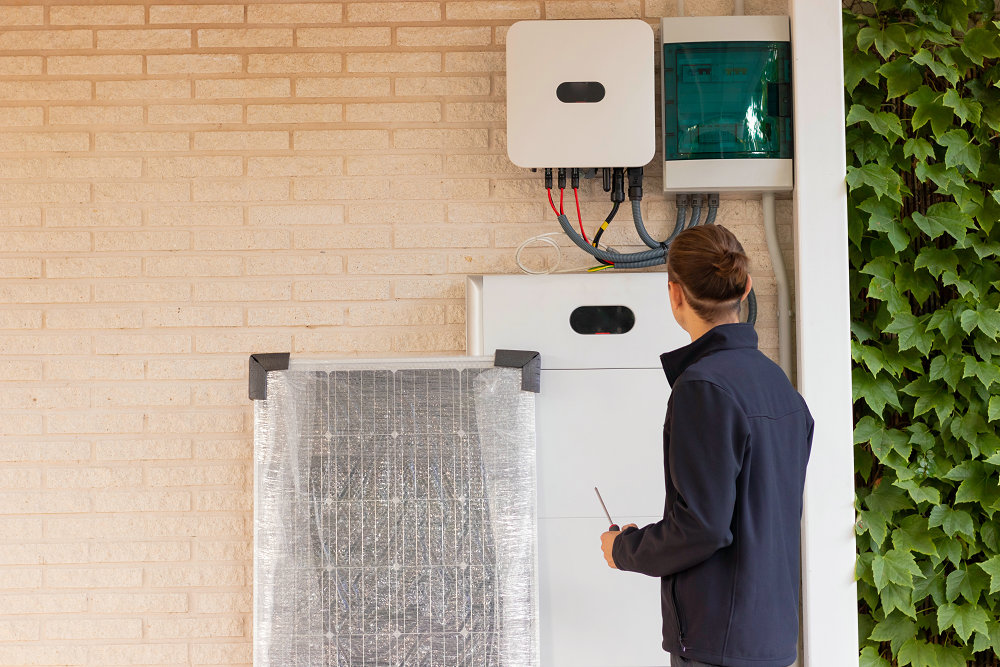
As a homeowner, when considering powering your home with a solar battery, you may be wondering about the cost of it. Having a solar battery for your home can be a valuable addition to your battery storage system, as it stores excess solar energy generated during nighttime or low sunlight hours in case of a power outage. So, let’s delve into the world of solar batteries and explore the costs associated with them.
Understanding Solar Batteries
Type of Solar Batteries
When choosing a solar battery for your needs, it’s important to consider the battery types and their characteristics. Your solar battery system will provide better reliability and return on investment when its chemistry is suitable for your specific application.
- Lead-Acid Batteries: A popular choice for off-grid solar energy systems, lead-acid batteries are affordable and come with a well-established supply chain. You can easily find vendors and technical support for these batteries. They typically have a charging life of 500 to 1000 cycles and should be charged after each use for optimum lifespan. Absorbed Glass Mat (AGM) batteries are an improved version of the traditional lead-acid battery, featuring a spill-proof design, faster charging, and better durability. Remember that when using lead-acid batteries with solar panels, you’ll need charge controllers to maintain a suitable charging current.
- Lithium-Ion Batteries: Gaining popularity in recent years, lithium-ion batteries offer excellent compatibility with solar panels and wind turbines. Lithium Iron Phosphate (LFP) batteries offer superior service life, some providing over 4,000 cycles at 80% DoD. Many lithium battery models come with built-in chargers and controls, making them convenient to install. However, they can be expensive and may experience thermal runaway issues when used at high temperatures, so be sure to invest in high-quality batteries and hire qualified electricians for installation.
- Nickel-Cadmium Batteries: These batteries are known for their durability, high-temperature tolerance, and low maintenance needs. They are often used in industrial and utility applications. However, due to the toxicity of cadmium, they are not recommended for home use.
- Flow Batteries: Also known as redox flow batteries, these store energy by separating positive and negative electrical charges in chemical solutions. Their main disadvantage is the large space requirement, making them not cost-effective for small-scale projects. A small flow battery system can be the size of a shipping container, rendering it unsuitable for home solar systems.
Solar battery endurance varies based on a range of factors like battery chemistry and brand. End-of-warranty capacities can be measured as a percentage of the initial capacity, with 70% being a standard warranty for many batteries in 2023.
Energy Storage Capacity
Your solar battery’s energy storage capacity, measured in kilowatt-hours (kWh), determines how much power it can hold and deliver to your home as backup during a power outage or to meet your energy independence needs. The storage capacity you need depends on your energy consumption, depth of discharge (DoD), and round-trip efficiency.
- Depth of Discharge (DoD): This refers to how much energy can be used from a battery before it needs recharging. For example, a 10 kWh battery with a 90% DoD allows you to use 9 kWh before it’s time to recharge.
- Round-trip efficiency: This represents the percentage of energy transferred from the battery during discharge, compared to the amount of energy used to charge it. A higher round-trip efficiency indicates a more efficient battery.
Solar Batteries: How Much Do They Cost?
As of October 2023, the cost of a solar battery is typically between $7,000 to $18,000. If it is a popular solar battery, the price will be higher.
However, it is important to understand the factors influencing the overall cost of solar batteries. Solar battery costs can vary depending on the battery capacity, technology used, and if it comes from the best solar companies. Furthermore, financial factors such as tax credits or rebates can also affect the overall cost. It’s crucial for you to research these factors and select a solar battery that fits your needs and budget to make a good decision.

Installation Cost
Solar installation has additional costs as well, including labor and permitting fees, which can vary depending on your location, the number of batteries installed, and the installer you choose. When selecting a solar installer, it’s important to find one who offers competitive rates and has experience installing the specific type of battery you’re interested in. Remember that besides the battery itself, other equipment, such as inverters and electrical work, may be needed to connect the battery to your solar panel system. On average, you can expect to pay between $2,000 and $3,500 for labor.
Additional Costs to Consider
Maintenance and Replacement: Solar batteries typically have a lifespan of 10-15 years, depending on usage and battery type. Make sure to account for any required maintenance and eventual replacement costs in your overall solar battery budget. Choosing a high-quality battery can help minimize these expenses in the long run.
Permit and Inspection Fees: Depending on your local regulations, there might be permit and inspection fees associated with installing a solar battery system. Check with your local government to see what fees you might have to cover.
Grid Connection and Net Metering: If you plan on connecting your solar battery system to the grid, you may need to pay for the integration. Additionally, some utility companies offer net metering, which allows you to sell excess energy back to the grid. Be sure to inquire about any fees or requirements to take advantage of this program.
Are Solar Panels Worth the Cost: What Can You Do to Save Money
The average home solar panel system cost in 2023 is $16,715 ($23,879 before factoring in the federal solar tax credit). However, if you focus on the long-term benefits, you’ll see that over 25 years, the average estimated net savings range from $10,000.
When assessing the value of a solar panel system, it’s essential to consider not only the initial investment but also the potential savings on your energy bills. By generating your electricity, you’ll likely see a significant reduction in your monthly energy costs.
Government Incentives and Rebates
Federal Solar Tax Credit
The Federal Solar Tax Credit is a great way for you to save money on your solar battery system. This credit, also known as the Investment Tax Credit (ITC), allows you to claim a percentage of the cost of your solar PV system on your federal income taxes. Currently, homeowners can receive 30% of the upfront cost back at tax time, the year after the system is installed. Remember that batteries also qualify for this tax credit, whether or not they are installed with solar panels.
Incentives and Rebates
Besides the federal tax credit, there are various solar incentives and rebates available to help reduce the cost of your solar battery system:
- Solar panel rebates: States, utility companies, and solar panel manufacturers often offer solar panel rebates, which can immediately reduce the cost of installation.
- State tax credits: Depending on your state, you might also be eligible for state tax credits on your solar battery system. These credits typically have a maximum amount ranging from $500 to $5,000.
To find the most up-to-date incentives and rebates available in your area, it’s a good idea to check the Database of State Incentives for Renewables and Efficiency (DSIRE), which is maintained by the North Carolina Clean Energy Technology Center. This comprehensive database will help you discover all the opportunities available for you to save money on your solar battery system.
Local and State Incentives
In addition to the federal tax credit and various incentives and rebates, your city or state government may have specific programs available to make solar battery systems more affordable. These can include property tax exemptions, sales tax exemptions, or grants for solar battery installations. Make sure to check with your local government agencies and follow the application processes when needed to take advantage of these savings.
By taking advantage of the government incentives and rebates available, you can significantly reduce the cost of your solar battery system and enjoy long-term savings on your energy bills. So make sure to explore all the options provided by federal, state, and local authorities to make the most of your investment in clean and renewable energy.
Considering a Solar Battery Loan
Loan options can vary, with interest rates, terms, and amounts depending on the lender. Consumers Unified, LLC, and other organizations like ConsumerAffairs, can provide useful information about financial products, but make sure to do your own research and compare different loan offers. Loan solicitation is a common practice, so ensure you carefully evaluate the terms and conditions before agreeing to any loan.
Mortgage Options for Solar Battery
Another financing option for solar batteries could be utilizing your mortgage. If you’re already working with a mortgage lender, mortgage broker, or mortgage correspondent lender, discuss the possibility of including a solar battery investment in your mortgage. This could be included in your mortgage applications or as a separate financing plan.
Remember that mortgage rates, terms, and lending laws may differ from state to state. For example, the Vermont lending laws and federal lending laws may have different requirements. Always consult with legal advisers and check the National Mortgage Licensing System and Registry (NMLS) Consumer Access #2110672 for authorized lenders when considering this option.
Legal Aspects of Solar Battery Loans
It’s essential to be aware of the legal aspects when applying for a solar battery loan. Both state and federal regulations can impact your loan options and eligibility in various ways. Always consult with legal advisers to ensure you understand the applicable lending laws in your specific location.
Make sure that your lender is authorized and compliant with the NMLS guidelines, as mentioned earlier. Educating yourself about the lending guidelines and consumer protection measures will help you make informed decisions about solar battery loans and safeguard your interests.
Home Warranty and Solar Batteries

Benefits of Home Warranty
A home warranty offers you peace of mind by covering the repair or replacement of major residential solar systems and appliances. Therefore, including your solar battery under a home warranty plan can help protect your investment and ensure your system functions optimally. Some benefits of having a home warranty for your solar battery include:
- Reduced repair costs: In the event of a malfunction, the warranty covers repair or replacement expenses.
- Extended lifespan: Regular maintenance covered by the warranty can prolong the lifespan of your solar battery.
- Increased value: A home equipped with a well-maintained solar battery system can attract potential buyers.
Service Contract for Solar Batteries
A service contract for your solar battery system is essential to keep it functioning at its best. It typically involves:
- Scheduled maintenance: Regular checkups and upkeep of your solar battery system to ensure optimal performance.
- System monitoring: Continuous monitoring to identify any technical issues and provide prompt solutions.
- On-call support: Access to professional assistance for any unexpected problems or emergencies.
It’s crucial to consult the solar battery manufacturer for specifics on warranties and service contracts, as these vary among different brands and models.
Working with Home Builders
Collaborating with a home builder who has experience with solar battery systems is key to a smooth installation process. Here are a few reasons why:
- Expertise: Home builders with prior experience in solar battery installation will have the necessary knowledge to advise on the ideal system for your home.
- Proper installation: Skilled home builders ensure the correct installation of your solar battery, improving system efficiency and longevity.
- Warranty support: Established home builders can assist with warranty registration and maintenance for your solar battery system.
Frequently Asked Questions
How much does a solar battery cost, 5kW?
A 5kW solar battery typically costs around $6,000 to $7,000. However, the exact price can vary depending on the brand, storage capacity, and other factors. It’s essential to compare different battery options to find the best fit for your needs and budget.
What’s the average lifespan of solar panel batteries?
The average lifespan of solar panel batteries ranges from 5 to 15 years, depending on the type and quality of the battery. Lead-acid batteries tend to have shorter lifespans around 5 to 7 years, while lithium-ion units can last 10 to 15 years. Proper maintenance and usage will also impact your battery’s lifespan.
How many solar batteries do I need for my home?
The number of solar batteries you need for your home depends on your energy consumption, solar power system size, and desired level of backup power. Analyze your daily energy usage to determine the appropriate storage capacity. In general, larger homes with higher energy requirements will need more solar batteries than smaller, energy-efficient homes.
What factors affect a solar battery bank cost?
Several factors affect a solar battery bank’s cost, including the battery’s storage capacity, brand, and expected lifespan. Additionally, installation and labor costs, as well as any financial incentives or tax credits available for energy storage, can also play a role in determining the overall price.
Are solar batteries a worthwhile investment?
Solar batteries can be a worthwhile investment, particularly if you want to maximize energy efficiency and take advantage of time-of-use pricing or net metering. While solar batteries are expensive, financial incentives and long-term savings on your energy bills can make them a valuable addition to your solar energy system.
How much does the Tesla powerwall cost?
As of 2023, the Tesla Powerwall is approximately $10,000, not including the costs of installation and permitting. However, consider that this price might vary based on different factors like labor charges, any incentives you qualify for and whether your current solar system is compatible with the Powerwall. Moreover, thanks to current laws in the U.S., the Tesla Powerwall comes with the benefit of a 30% federal tax credit, which also applies to the cost of solar panel installation.
Are solar batteries worth the costs?
The worth of solar batteries can be subjective and depends largely on individual circumstances. They have a significant upfront cost but can help save on energy costs over time. In general, installing a solar battery is considered worthwhile if higher savings can be achieved than the cost of ownership.